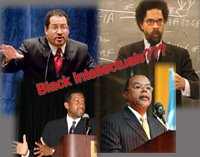
Over the last 13 years, we have witnessed the evolution of Hip Hops most successful duo, OutKast. They went from virtual unknowns to Hip Hop Gods, they have navigated the morass of greedy executives and biased music critics with equanimity. Big Boi and André went from rival rappers, to faithful collaborators. After hooking up with Organized Noize Productions, they signed a deal with Laface Records in 1992 and dropped their first single, “Players Ball” in 1993. Big Boi, obliviously employed as a street pharmacist raps, “I'm wide open on the freeway my pager broke my vibe/cause a junkie is a junkie three-sixty-five.” When I originally heard the song, immediately I became mesmerized by their accurate depiction of the harsh realities of growing up in a southern ghetto. I related to their lyrics and since I was born and raised in Mississippi, they were “preaching to the choir.” Their first full length debut,
Southernplayalisticadillacmuzik was released in 1994 and featured the title track and the consciously charged “Git Up, Git Out,” featuring the Goodie Mob. OutKast received numerous accolades for their work and the album, became an instant classic for many. With Nas’s release of “Illamatic” the same year, I found myself pondering; can it get any better than this?
I remember vividly, the day that OutKasts second album was released in 1996. I was a freshman in college, and a friend and I skipped one of our morning classes in to travel to the record store to buy the album. This album signaled the beginning of Andre’s conscious awakening and increased level of sobriety and equanimity. "No drugs or alcohol, so I can get the signal clear. Put my glock away/I got a stronger weapon that never runs out of ammunition so I'm ready for war okay," he states on the title track. ATLiens was one of the most critically acclaimed albums of the year and solidified their reputation as Hip Hop pioneers.
Two years later (1998), OutKast dropped Aquemini, which was universally hailed as arguably their best album to date. I remember opening the package on the CD and carefully scanning the track list. I immediately began skimming the tracks, and when song number three “Return of the G” started playing, I immediately knew that the rest of the album would be special. On this track Big Boi posits, “Man a n*gga don't want no trouble, a playa just want to kick back with my gators off and watch my lli'l Gull blow bubbles.” “But still ready to rhyme standing my ground, never back down, Willin' to rob steal & kill any thang that threatens mine.” André never one to be outdone lyrically, addresses his critics when he raps, “Return of the gangsta thanks ta' them n*ggas that thank (think) you soft and say y'all be gospel rappin, but they be steady clappin' when you talk about b*tches & switches & h*es & clothes & weed let's talk about time travelin rhyme javelin somethin' mind unravelin get down.” OutKast was finally awarded the coveted “5 Mics” from The Source. OutKast was sued by Rosa Parks, because she claimed that the group’s single “Rosa Parks” unconstitutionaly borrowed her name. The case eventually was settled out of court. OutKast has never admitted any liability and rightfully so.
Their fourth album, Stankonia (2000), went quadruple-platinum, and OutKast won two awards at the 2001 Grammy’s. Highlights from this album included the singles “Ms. Jackson,” and “So Fresh and So Clean. On “Ms. Jackson,” Big Boi and André 3000 discuss relationship issues, disgruntled baby mother’s and grandmother’s sometimes acrimonious attitudes towards the child’s father. On “Gasoline Dreams”, André exclaims, “All of my heroes did dope /Every n*gga round me playin' married. Or payin child support/I can't cope /Never made no sense to me one day I hope it will And that's that, sport, sport.”
In 2003, OutKast dropped the double album Speakerboxxx/The Love Below. This album has been critically acclaimed for its creativity and vision. The singles “Hey Ya,” and “The Way You Move,” constantly burned up the airwaves and became instant classics. The album was certified diamond (10 million units shipped) in December 2004.
On “She Lives in My Lap,” André does his best Jimi Hendrix impression “She stays alone, never sheds a single tear. She stays in the coolest moods, clearly woman of the year.” With their popularity at an all time high, who knows what records they will set now? In the past couple of years the two have ventured into the movie arena. André recently co-starred in the
Four Brothers, while Big Boi took a featured role in the
T.I’s movie debut vehicle
ATL. Big Boi and André will appear opposite each other in the August release of Idlewild and will contribute extensively to its soundtrack.
The rumor mill posits that the duo have been on the verge of a breakup for quite some time, and the group’s proposed final album, The Hard 10, may make the rumors
official. Big Boi reportedly has recorded over 20 tracks for his solo album, and is busy managing his Purple Label music imprint. Andrés’ primary focus has become movies and television. He has starring roles in several upcoming movies and is producing a cartoon series, Class of 3000, which is slated to debut on The Cartoon network’s fall 2006 lineup. Oprah Winfrey recently invited OutKast to be guests on her show to discuss their new movie Idlewild, but they declined. This might have propelled Idelwild to unparalleled success, because Miss Winfrey does have the Midas touch. Sources have reported that Big Boi wanted to go on the show, but André refused to attend. I hope that this difference of opinion does not end in disaster. If they are experiencing differences of opinion, let’s pray for a rapprochement.








